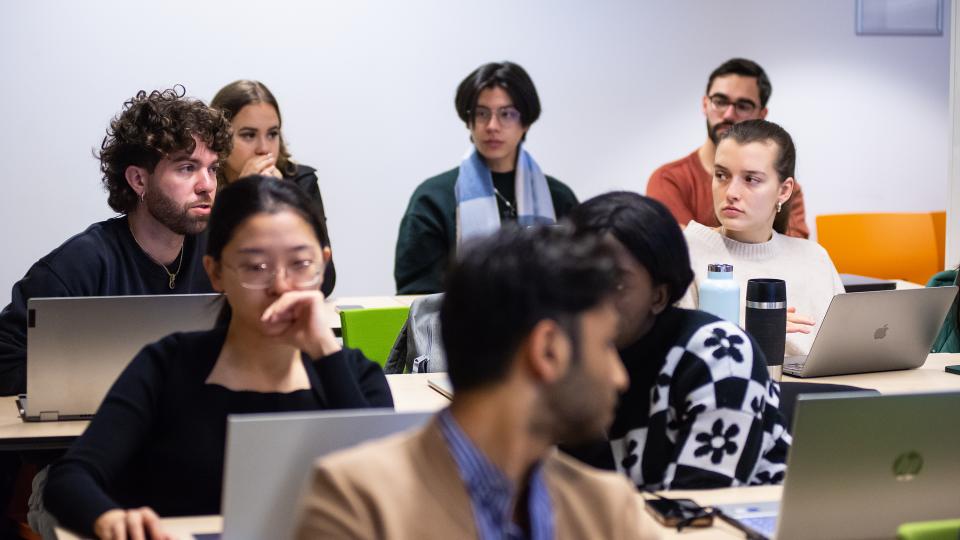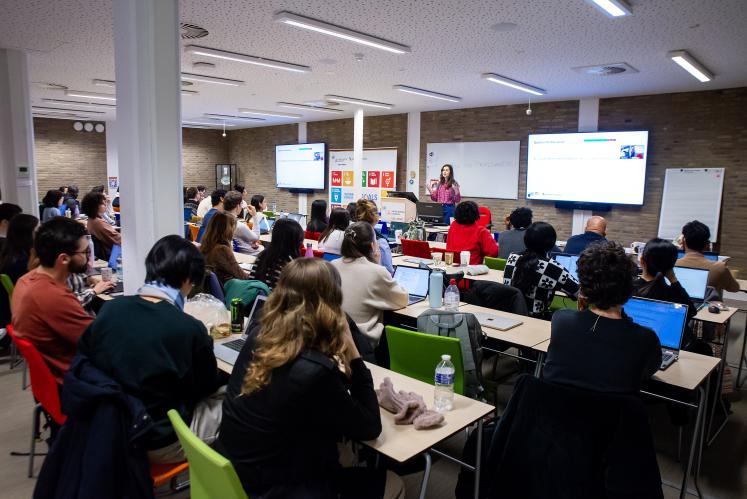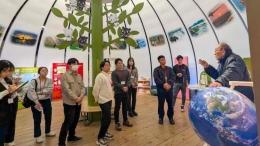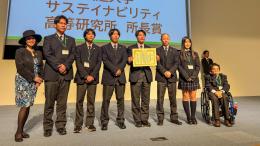Last Wednesday, UNU-MERIT hosted a hybrid open lecture as part of our master’s programme in Public Policy and Human Development (MPP), offering prospective students a glimpse into the dynamic learning environment the programme fosters.
The lecture, titled 'Introduction to Qualitative Methodologies and Methods', was delivered by UNU-MERIT researcher Dr. Talitha Dubow. Building on earlier discussions of research design and paradigms in qualitative research, the session delved into the practicalities of selecting and applying qualitative methodologies for policy-relevant research.
Dr. Dubow explored a diverse array of methods, from widely used approaches like semi-structured interviews and focus groups to more innovative techniques such as qualitative surveys and arts-based methods. Along the way, she challenged common assumptions—for instance, the idea that interviews are always the best option for exploring sensitive topics or that focus groups are simply “group interviews.” She furthermore highlighted the adaptability of methods, such as the choice between structured and unstructured interviews or synchronous versus asynchronous approaches. These insights reflect a broader methodological evolution spurred by the global research community’s adaptations during the Covid-19 pandemic, when traditional face-to-face methods were often impractical.
The lecture also underscored the richness of exchanging ideas and experiences among students. Many MPP students bring valuable perspectives from prior academic or professional backgrounds, making interactive sessions an opportunity to cross-pollinate knowledge. At the same time, the programme actively encourages students to experiment with new methodologies.


For instance, in the current 'Advanced Methods for Policy-Relevant Research and Analysis' course, students are collaborating on interview-based projects related to housing. This week, some groups have incorporated innovative elements such as visual prompts into their interview designs, broadening their methodological toolkit. Similarly, the 'Public Policy Analysis' course introduces students to mixed-methods designs, prompting them to think critically about how qualitative and quantitative approaches can complement one another in evaluating policy. These projects lay the groundwork for the thesis phase, where students take the lead in designing and conducting independent research projects. From formulating their own research questions to drawing policy recommendations, the process offers a unique opportunity to apply and refine their methodological skills.
Dr. Dubow’s lecture highlighted the critical balance required in research design—understanding the strengths and limitations of various methods while addressing ethical and feasibility considerations. Such deliberations are integral to ensuring that qualitative research produces meaningful, actionable insights. Over the coming weeks, as students synthesize their learning and develop concrete plans, it will be exciting to see how these foundational discussions shape the directions of their thesis projects.
Qualitative research is not just about gathering data—it’s about selecting the right tools for the question at hand and using them thoughtfully to uncover nuanced understandings. By emphasizing both the practical and reflective dimensions of research, the MPP programme equips students with the methodological confidence to tackle real-world policy challenges.
Curious about our master's programme in Public Policy and Human Development, offered jointly by the United Nations University (UNU-MERIT) and Maastricht University?
Learn more here!



